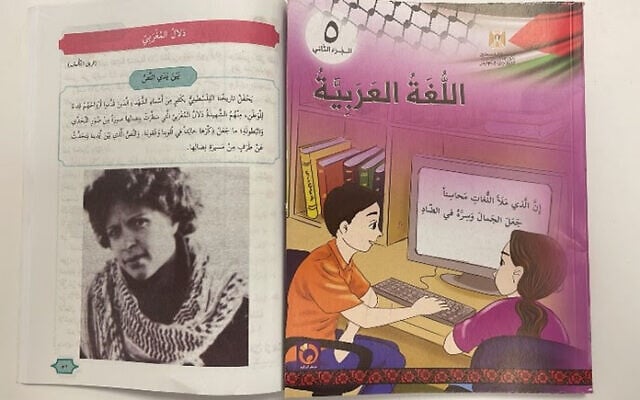Is the Palestinian Authority fit to rule Gaza?
As long as its educational format remains in place, there seems to be no chance for a peace settlement between the P.A. and Israel.
By Arnon Groiss
JNS
Jun 30, 2025
The idea of reinstalling the Palestinian Authority in Gaza as part of a suggested solution meant to end the current war there has raised some serious questions.
One might wonder, first and foremost, whether the P.A. is capable of maintaining real control, bearing in mind that it previously ruled there and was ousted by Hamas in a military coup in 2007.
Moreover, the P.A. itself is overwhelmingly corrupt and barely maintains control in what it calls the “West Bank” (Judea and Samaria). One could even suggest that the P.A.’s very existence there relies to a large extent on the massive Jewish presence in many areas there—civilian settlements and military forces.
Perhaps it would be possible to bring the P.A. back into power in Gaza under the same conditions, bearing in mind that Hamas managed to take control of the Strip only after it had been cleared of its Jewish population and IDF forces in 2005.
Furthermore, if it is intended to use the P.A.’s control of Gaza as a prelude to advancing the two-state solution—and assuming that Hamas will cease to exist as an adversary (something that is difficult to see today)—there is another obstacle that should not be ignored; namely, the P.A.’s ideology regarding Israel, which is not fundamentally different from that of Hamas.
The idea of reinstalling the Palestinian Authority in Gaza as part of a suggested solution meant to end the current war there has raised some serious questions.
One might wonder, first and foremost, whether the P.A. is capable of maintaining real control, bearing in mind that it previously ruled there and was ousted by Hamas in a military coup in 2007.
Moreover, the P.A. itself is overwhelmingly corrupt and barely maintains control in what it calls the “West Bank” (Judea and Samaria). One could even suggest that the P.A.’s very existence there relies to a large extent on the massive Jewish presence in many areas there—civilian settlements and military forces.
Perhaps it would be possible to bring the P.A. back into power in Gaza under the same conditions, bearing in mind that Hamas managed to take control of the Strip only after it had been cleared of its Jewish population and IDF forces in 2005.
Furthermore, if it is intended to use the P.A.’s control of Gaza as a prelude to advancing the two-state solution—and assuming that Hamas will cease to exist as an adversary (something that is difficult to see today)—there is another obstacle that should not be ignored; namely, the P.A.’s ideology regarding Israel, which is not fundamentally different from that of Hamas.
A grade 3 textbook depicts Yasser Arafat declaring Palestinian Independence Day, along with the quote, ‘In the name of God, and in the name of the Palestinian Arab people, the establishment of the State of Palestine, on our Palestinian land, with Al-Quds Al-Sharif as its capital’
Since 2000, I have been studying the attitude to Israel, Jews, and peace in the PA textbooks, which are also taught in all schools in the Gaza Strip, including those run by the U.N. Relief and Works Agency for Palestine Refugees (UNRWA). I have examined more than 1,000 textbooks and teachers’ manuals, assuming they constitute the clearest indication of how the P.A. strives to educate its younger generations.
The findings of this research activity reveal three fundamental principles as far as Palestinian textbooks address the conflict:
- Delegitimization of the existence of the State of Israel and the very presence of its more than seven million Jewish citizens: Israel does not appear on any map while “Palestine” is presented as the sovereign state in the region that has been under occupation since 1948. In this context, the phrase “Zionist occupation” replaces the phrase “State of Israel” in most references to the conflict. The Jews in Israel are presented as a foreign colonial population and their cities, primarily Tel Aviv, do not appear on the map. Their history in their ancient homeland is denied, as is the existence of places sacred to them there. The Western Wall in Jerusalem, for example, is presented as a Muslim holy site exclusively.
- Demonization of both Israel and the Jews: The latter are attributed with annihilationist intentions against the Palestinians and are alleged to have committed massacres against them under the influence of Jewish religious thought. Jews are demonized as well outside the context of the conflict. They are portrayed as traitors since the early days of Islam and as enemies of God’s prophets, which carries, in effect, a death sentence against them, in the eyes of students coming from a traditional society.
- Indoctrination for a war of liberation from occupation, which includes the territories of the State of Israel within its pre-1967 borders: Such a struggle is given a religious nature, and terrorism is made an essential part thereof. There are even isolated references that make the extermination of the Jews part of the liberation process.
An up-to-date presentation of materials taught in recent years in UNRWA schools (grades one-10), in addition to details about the researcher, scope of the research and methodology, can be seen here.
It should be emphasized that the textbooks for grades 11 and 12 are no better, and I have included two examples in my study: One is taken from an Islamic religious textbook, and the other from a Christian religious one (used by Christian students in the Palestinian education system).
As long as this educational format remains in place, there seems to be no chance for a peace settlement between the P.A. and Israel. On the contrary, placing the P.A. as a governing entity in Gaza would open the door to renewed radicalization there.


No comments:
Post a Comment